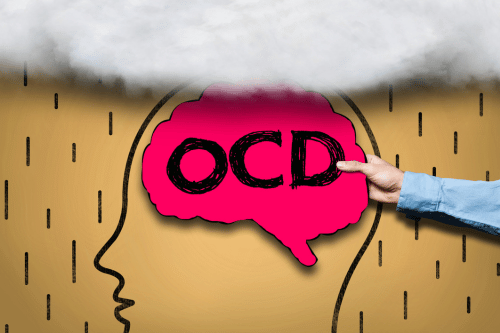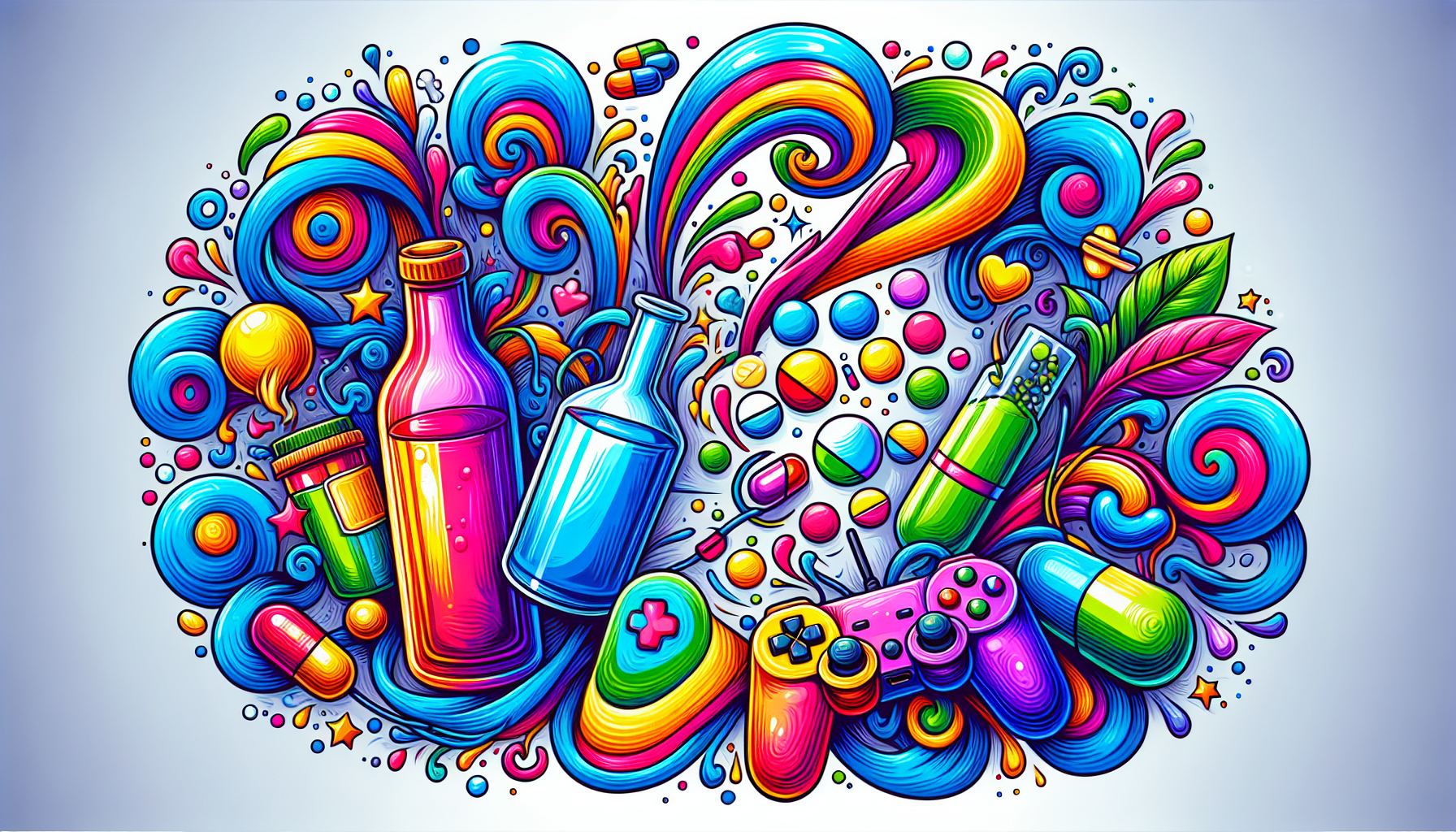

Are you struggling to understand the connection between OCD and addiction? This article delves into how these disorders often co-occur, why this happens, and offers effective strategies for managing both conditions.
Approximately 25% of individuals with OCD also experience substance use disorder, indicating a significant co-occurrence that complicates treatment.
Integrated treatment approaches that address both OCD and addiction simultaneously have been shown to improve recovery outcomes significantly.
Cognitive Behavioral Therapy (CBT) and medication management, particularly with SSRIs, are essential components of effective treatment for co-occurring OCD and substance use disorders.
Navigating the tumultuous waters of OCD and addiction can feel like an insurmountable challenge. Yet, understanding the prevalence and interplay of these conditions offers a beacon of hope. It’s estimated that a notable percentage of individuals with OCD also struggle with substance use disorder, with around 25% experiencing this dual burden in their lifetime. This overlap isn’t coincidental; both OCD and SUD involve behaviors that individuals feel compelled to engage in to alleviate distress, even though these actions often lead to temporary relief followed by worsening symptoms.
Effective treatment focuses on addressing both disorders simultaneously rather than sequentially. Integrated treatment approaches, which consider the complexities of both OCD and addiction, have shown to significantly enhance recovery outcomes. Behavioral treatments, in particular, have been pivotal, reducing the severity of OCD symptoms and improving engagement in treatment.
Neuroimaging studies further support these findings, showing changes in brain functioning that align with symptom relief after behavioral therapy. Understanding the role of neurotransmitters such as serotonin and dopamine in both OCD and addiction provides additional insight into why these conditions often co-occur.
Treating OCD often involves higher doses and longer periods to assess medication effectiveness, highlighting the need for specialized protocols. This comprehensive approach ensures that individuals receive the tailored care they need to manage both conditions effectively.
The relationship between obsessive-compulsive disorder (OCD) and addiction is a complex and often misunderstood one. This blog post explores the co-occurrence of these conditions and highlights effective treatment strategies.
Exploring the definitions, interplay, contributing factors, and treatment approaches provides a deeper understanding of how to manage and overcome these challenges.
Obsessive-compulsive disorder (OCD) is a mental health condition characterized by persistent, unwanted thoughts (obsessions) and repetitive behaviors (compulsions) that an individual feels compelled to perform. These obsessive thoughts and compulsive actions can consume significant amounts of time, leading to distress and impairment in daily functioning. The Diagnostic and Statistical Manual of Mental Disorders categorizes OCD under psychiatric disorders, highlighting its severe impact on mental health.
People with OCD often engage in harmful behaviors despite being aware of the negative consequences. This paradoxical situation can exacerbate OCD symptoms, creating a vicious cycle of distress and compulsion. OCD can co-occur with other psychiatric conditions, including anxiety disorders, bipolar disorder, and personality disorders, further complicating the clinical picture. The persistence of these behaviors underscores the chronic nature of OCD and the challenges in treating it effectively.
The prevalence of OCD is notable, with studies indicating a lifetime prevalence rate of around 25% for those also experiencing substance use disorder. Both OCD and substance use disorders involve unwanted behaviors that aim to alleviate distress, leading to temporary relief but eventually worsening symptoms. Integrated treatment approaches are essential in addressing these co-occurring disorders, enhancing recovery by treating both conditions simultaneously.
Treating OCD often involves higher doses and longer periods to assess medication effectiveness compared to other conditions like depression. This highlights the need for specialized treatment protocols and a comprehensive understanding of the neurobiological underpinnings of OCD. Neurotransmitters such as serotonin and dopamine play critical roles in the development and maintenance of OCD, influencing brain communication and behavior control.

Addiction is a chronic disorder characterized by compulsive behavior related to substance use, even when faced with harmful consequences. This compulsive nature of drug addiction can significantly impair an individual’s ability to make decisions, affecting their judgment and memory. Similar to other chronic diseases, addiction disrupts healthy functioning and can have long-term consequences if left untreated.
Individuals with substance use disorder engage in a cycle of repeated pursuit, obtaining, and using substances, often at the expense of their health and well-being. This relentless pursuit highlights the powerful grip addiction can have on an individual, making it challenging to break free without appropriate treatment. Substance use disorders encompass a range of addictive behaviors, including drug abuse, alcohol dependence, and behavioral addictions, each with its unique challenges and impacts.
Effective substance abuse treatment is essential in helping individuals overcome addiction and regain control over their lives. Treatment approaches must address the underlying causes of addiction, providing individuals with the tools and support needed to manage their condition and achieve lasting recovery. Understanding the nature of addiction and its impact on brain function helps develop more effective strategies for supporting individuals on their recovery journey.

The relationship between OCD and addiction is complex and multifaceted, leading to significant challenges in both diagnosis and treatment. Research indicates that around 25% of individuals with OCD also experience substance use disorder (SUD), with variations based on substance type and gender. This co-occurrence is not just a coincidence; it reflects the interconnected nature of these conditions and the shared mechanisms that underlie them.
Both OCD and substance use disorder involve unwanted behaviors that aim to alleviate emotional or physical distress. For individuals with OCD, the compulsive nature of their behaviors can drive them to seek temporary relief through substance use, which in turn can exacerbate their OCD symptoms. This bidirectional relationship creates a challenging cycle where drinking or drug use can worsen OCD symptoms, and the worsening symptoms can lead to increased substance use.
Individuals with OCD are at a significantly increased risk of developing alcohol use disorders, being about five times more likely than the general population. A large Swedish study found that those diagnosed with OCD have a 3.7 times greater risk of substance misuse compared to those without OCD. This heightened risk underscores the importance of understanding and addressing the interplay between these conditions to provide effective treatment.
Treating co-occurring OCD and addiction often requires a multifaceted approach that addresses both conditions simultaneously. Recognizing the interconnectedness of OCD and addiction allows healthcare providers to develop comprehensive treatment plans that address the unique challenges of these co-occurring disorders. This holistic approach can significantly enhance recovery outcomes and improve the quality of life for those affected.
Understanding the underlying mechanisms that contribute to the co-occurrence of OCD and addiction is crucial for developing effective treatment strategies. Both conditions are often classified as brain disorders due to their impact on functions associated with reward and self-control. The interplay of these brain functions can create a fertile ground for the development of both OCD and addiction.
Environmental factors, such as family dynamics and peer influences, play a significant role in increasing the risk of developing an addiction. Early drug use is another major indicator of future addiction challenges, as it can lead to long-lasting changes in the brain that make quitting more difficult. These environmental influences, combined with the inherent vulnerabilities associated with OCD, can create a perfect storm for the development of co-occurring disorders.
Understanding these contributing factors is crucial for developing targeted treatment interventions that address the root causes of both OCD and addiction. By considering the environmental and neurobiological factors at play, healthcare providers can create more effective and comprehensive treatment plans that promote lasting recovery.
One of the key theories explaining the co-occurrence of OCD and addiction is the self-medication hypothesis. This hypothesis suggests that individuals suffering from OCD may turn to drugs or alcohol as a coping mechanism to relieve their anxiety and other distressing symptoms. The use of substances provides temporary relief from the overwhelming obsessive thoughts and compulsive behaviors, creating a cycle of dependency and worsening symptoms.
Individuals with OCD may use substances as a means to manage their anxiety, suggesting a potential self-medication behavior. For instance, alcohol is often used to temporarily alleviate anxiety and obsessive thoughts, but this relief is short-lived and often followed by a worsening of OCD symptoms, especially during the withdrawal phase. This cycle of temporary relief and subsequent worsening of symptoms underscores the challenges faced by individuals with co-occurring OCD and addiction.
Future research should explore environmental factors contributing to the relationship between OCD and substance misuse, such as the self-medication hypothesis. By understanding the motivations behind substance use in individuals with OCD, we can develop more effective treatment strategies that address both the underlying anxiety and the substance use behaviors.
The neurobiological links between OCD and addiction offer another explanation for their co-occurrence. Neurotransmitters such as serotonin, glutamate, and dopamine are implicated in both OCD and substance use disorders, affecting brain communication and behavior control. These neurotransmitters play significant roles in the development and maintenance of both conditions, influencing the brain’s reward system and decision-making processes.
Changes in the prefrontal cortex, a brain region responsible for decision-making, may also contribute to the co-occurrence of OCD and addiction. These changes can impact an individual’s ability to control repetitive behaviors and make healthy decisions, further complicating the treatment of these conditions.
The complex neurobiological links between OCD and addiction highlight the need for integrated treatment approaches that address these underlying mechanisms.
Shared risk factors for OCD and addiction further explain the high rate of co-occurrence between these conditions. Common risk factors include genetic predispositions and environmental influences, which can increase an individual’s vulnerability to both OCD and substance use disorders. The relationship between OCD and substance misuse may be partially due to shared genetic factors, accounting for a significant portion of the association.
Recognizing these shared risk factors is crucial for developing effective treatment strategies. By recognizing the genetic and environmental influences that contribute to both OCD and addiction, healthcare providers can create more targeted and comprehensive treatment plans that address the root causes of these co-occurring disorders. This approach can help improve recovery outcomes and reduce the likelihood of relapse.
Treating co-occurring OCD and addiction requires an approach that addresses both conditions concurrently. Research indicates that simultaneous treatment for OCD and substance use disorder (SUD) can significantly improve overall recovery outcomes. Integrated treatment programs that target both conditions simultaneously can reduce OCD symptoms and increase treatment engagement.
One of the most effective methods for treating these co-occurring disorders is cognitive behavioral therapy (CBT), which has shown considerable efficacy in modifying dysfunctional thought patterns and behaviors associated with both OCD and substance use. However, there is a notable lack of training in exposure response prevention, a key component of CBT, among professionals in dual-diagnosis programs. This gap underscores the need for comprehensive training and education to ensure individuals receive the best possible care.
Medication management is also crucial in treating co-occurring OCD and addiction. Selective serotonin reuptake inhibitors (SSRIs) are commonly prescribed to alleviate symptoms of both OCD and SUD, providing a foundation for managing these conditions. Combining behavioral therapy with medication, integrated treatment programs offer a holistic approach that addresses the root causes and symptoms of both disorders.
Cognitive behavioral therapy (CBT) is a cornerstone in treating both OCD and substance use disorders. This therapeutic approach focuses on altering dysfunctional thought patterns and behaviors that contribute to these conditions. CBT helps individuals recognize and modify negative thought patterns, reducing the compulsions and substance use behaviors that characterize OCD and addiction.
One of the primary benefits of CBT is its structured nature, which provides individuals with a clear framework for understanding and addressing their symptoms. Working with a therapist helps individuals develop strategies to manage intrusive thoughts and unwanted behaviors, improving mental health outcomes. This targeted approach is particularly beneficial for those struggling with the dual challenges of OCD and addiction, as it addresses the underlying cognitive processes that drive these behaviors.
In addition to individual therapy, CBT can be adapted for group settings, offering a supportive environment where individuals can share experiences and learn from one another. This collaborative approach can enhance treatment engagement and provide additional motivation for recovery. Overall, CBT’s effectiveness in treating OCD and substance use disorders makes it a vital component of integrated treatment programs.
Medication management is another critical aspect of treating co-occurring OCD and addiction. Selective serotonin reuptake inhibitors (SSRIs) are often prescribed to help alleviate the symptoms of both conditions, providing a foundation for effective treatment. SSRIs work by increasing the levels of serotonin in the brain, which can help reduce anxiety and improve mood, thereby addressing some of the core symptoms of OCD and addiction.
In addition to SSRIs, other medications may be used to support recovery, depending on the individual’s specific needs. It’s important for healthcare providers to closely monitor medication use and adjust dosages as needed to ensure optimal outcomes.
By combining medication management with behavioral therapies like CBT, individuals with co-occurring OCD and addiction can receive comprehensive care that addresses both the psychological and physiological aspects of their conditions.
Integrated treatment programs are essential for addressing the complexities of co-occurring OCD and addiction. These programs provide coordinated care that addresses both disorders concurrently, leading to better recovery outcomes. Research shows that treatment addressing both OCD and substance use disorder (SUD) simultaneously has led to reduced OCD symptoms and increased treatment engagement.
One of the key benefits of integrated treatment programs is their comprehensive approach, which considers the interconnected nature of OCD and addiction. By treating both conditions at the same time, these programs can more effectively reduce symptoms and prevent relapse, compared to traditional methods that focus on one disorder at a time. This holistic approach ensures that individuals receive the specialized care they need to manage both conditions.
Programs that combine cognitive behavioral therapy (CBT) and medication management within an integrated framework can offer the most effective treatment for co-occurring OCD and addiction. Addressing the root causes of these disorders and providing ongoing support, integrated treatment programs can help achieve lasting recovery and improve overall quality of life.

Treating co-occurring OCD and substance use disorders presents several unique challenges. One significant issue is the impact of long-term substance use on OCD symptoms. Individuals who use alcohol or other substances to cope with their OCD often find that their symptoms worsen over time, creating a cycle of dependency and increasing the difficulty of treatment. Heavy drinking, in particular, can lead to more severe OCD symptoms and poorer treatment outcomes.
Another challenge is the high level of functional impairment experienced by individuals with both OCD and substance use disorders. These individuals are more likely to receive disability benefits, have a history of being housebound due to OCD, and experience psychiatric hospitalizations. This significant impairment underscores the need for comprehensive and targeted treatment approaches that address the full spectrum of challenges faced by these individuals.
Additionally, individuals with co-occurring OCD and substance use disorders often report similar levels of impairment in occupational and social functioning as those with only OCD, but with a higher incidence of suicidal ideation and attempts. This increased risk highlights the importance of addressing both mental health and substance use issues in treatment to improve overall outcomes and reduce the risk of severe consequences.
Early intervention in managing co-occurring OCD and substance use disorders can significantly alter the course of these conditions and improve recovery outcomes. Identifying OCD symptoms and substance use behaviors early can help prevent the escalation of both disorders, reducing the long-term impact on an individual’s health and well-being. Implementing early intervention strategies can increase the chances of successful recovery and provide individuals with the tools they need to manage their conditions effectively.
In addition to improving recovery prospects, early intervention is also cost-effective. Addressing substance use disorders and mental health issues early helps reduce long-term healthcare costs associated with untreated conditions. Engaging families and support systems in the early intervention process can further enhance recovery outcomes, providing individuals with a strong network of support as they navigate their journey to recovery.
Living with OCD and addiction can have a profound impact on personal relationships and daily life. The time-consuming rituals and compulsions associated with OCD can place significant strain on relationships, leading to misunderstandings and frustration among loved ones. Communication difficulties often arise, as individuals with OCD may struggle to express their fears and the nature of their compulsions, further complicating relationships.
Social anxiety and fear of judgment can lead individuals with OCD to avoid social activities, resulting in isolation and loneliness. This isolation can exacerbate symptoms and make it more challenging to seek help and support. Building a supportive network involving therapists, family, and friends is crucial for individuals with OCD, as it can help them navigate personal and daily challenges more effectively.
Educating family and friends about OCD is essential for fostering understanding and support. Learning about the condition helps loved ones better empathize with the struggles faced by individuals with OCD and addiction, providing necessary support to manage symptoms and improve quality of life. This supportive environment can make a significant difference in the recovery process, helping individuals feel understood and less alone in their journey.
Recent research has provided valuable insights into the connection between OCD and substance use disorders, highlighting the need for integrated treatment approaches and early intervention. Studies have shown that individuals with OCD are at a significantly increased risk of developing substance use disorders, emphasizing the importance of addressing both conditions simultaneously to improve recovery outcomes. These findings underscore the complexity of co-occurring OCD and addiction and the need for tailored treatment strategies that consider the unique challenges faced by individuals with these conditions.
However, there is still much to learn about the underlying mechanisms that drive the co-occurrence of OCD and addiction. Further research is needed to better understand the genetic, neurobiological, and environmental factors that contribute to this relationship, as well as to develop more effective treatment approaches.
By continuing to explore these areas, we can improve our understanding of co-occurring OCD and addiction and develop better strategies to support individuals in their recovery journey.
Understanding the relationship between OCD and addiction is crucial for developing effective treatment strategies and improving recovery outcomes. By exploring the definitions, interplay, contributing factors, and treatment approaches for these co-occurring disorders, we can gain a deeper understanding of the challenges faced by individuals with OCD and addiction and the best ways to support them.
Integrated treatment approaches that address both OCD and addiction simultaneously have shown to be more effective in reducing symptoms and improving treatment engagement. Cognitive behavioral therapy (CBT) and medication management are key components of these integrated programs, providing individuals with the tools and support they need to manage their conditions and achieve lasting recovery.
In conclusion, early intervention, comprehensive treatment approaches, and a supportive network are essential for helping individuals with co-occurring OCD and addiction navigate their journey to recovery. By continuing to explore the underlying mechanisms and developing more effective treatment strategies, we can provide better support for those affected by these challenging conditions, offering hope and a path to a healthier future.

At Sullivan Recovery, as an in-network provider we work with most insurance plans, such as:
And More
If you or a loved one are struggling with mental health challenges or substance abuse, reach out to Sullivan Recovery today. Our team of compassionate professionals is here to support your journey towards lasting well-being. Give us a call at 949-836-7180.
Approximately 25% of individuals with obsessive-compulsive disorder (OCD) also experience substance use disorder (SUD) at some point in their lives. This highlights the importance of addressing both conditions in treatment.
Cognitive Behavioral Therapy (CBT) effectively aids in treating co-occurring OCD and addiction by helping individuals identify and alter negative thought patterns and behaviors linked to both conditions. This structured approach enhances their ability to manage symptoms and reduce reliance on substances.
Neurotransmitters like serotonin, glutamate, and dopamine significantly influence the co-occurrence of OCD and addiction by affecting brain communication and the regulation of behavior. Their dysregulation can contribute to the symptoms of both conditions.
Early intervention is crucial for individuals with co-occurring OCD and addiction as it can prevent the worsening of both disorders, enhance recovery outcomes, and ultimately lower long-term healthcare costs. Taking action sooner rather than later significantly increases the likelihood of successful management.
Integrated treatment programs for co-occurring OCD and addiction lead to improved recovery outcomes by addressing both disorders simultaneously, which helps reduce symptoms and enhances treatment engagement. This coordinated approach fosters a more effective and comprehensive recovery experience.